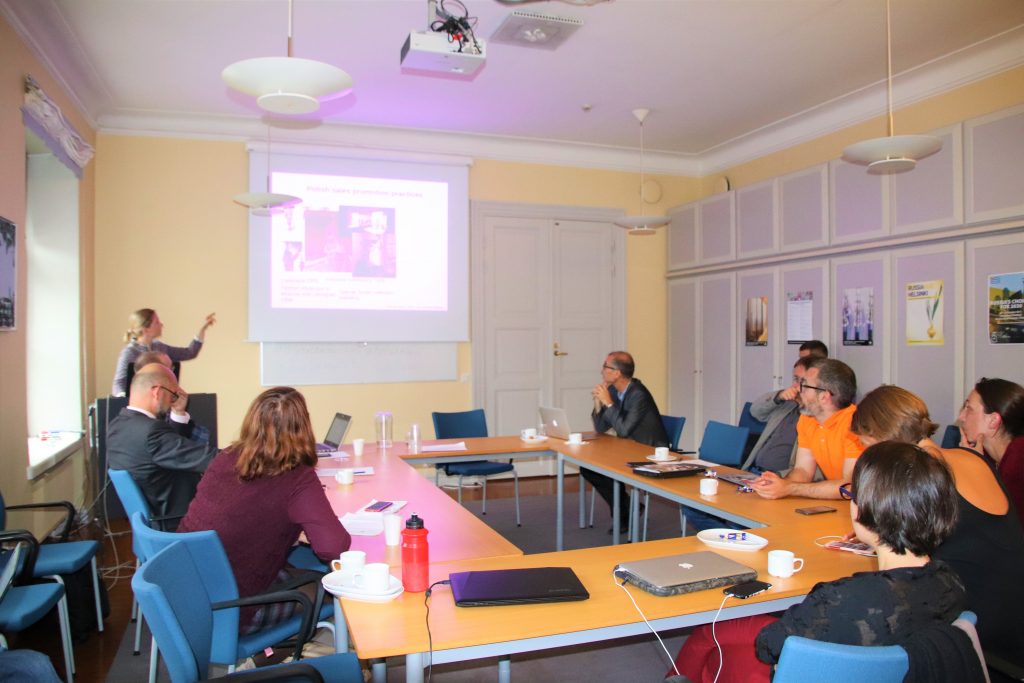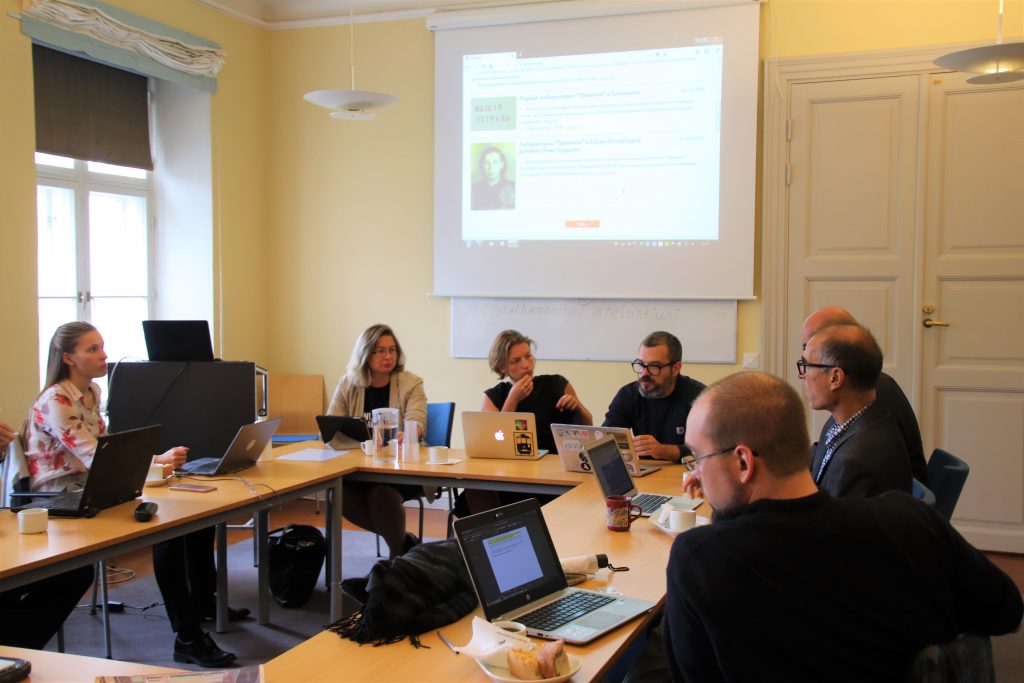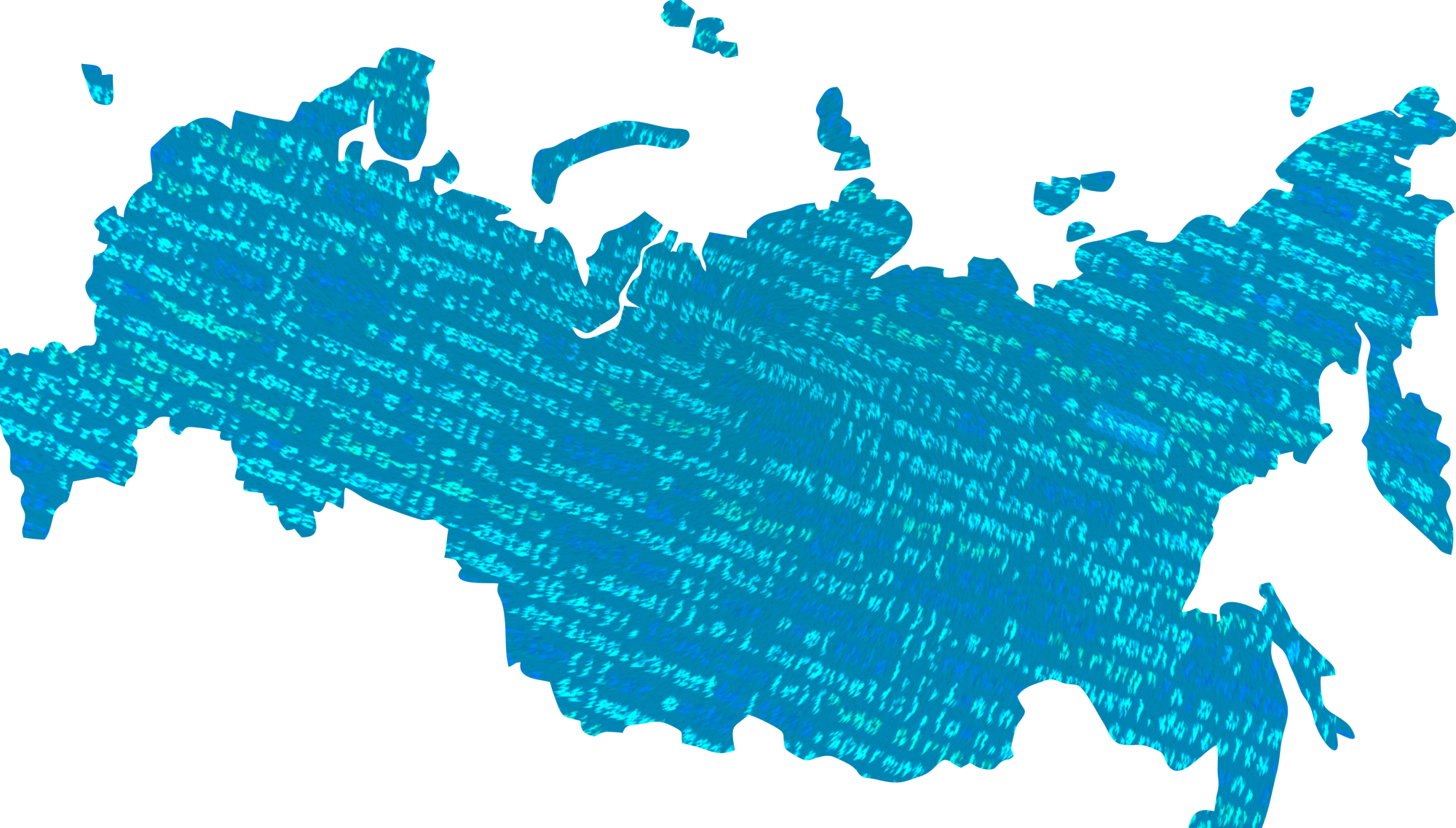On 10-11 September, together with the Herder Institute for Historical Research on East Central Europe (Marburg, Germany) a joint workshop was organised at the Aleksanteri Institute. Digital humanities enthusiasts enjoyed two days of discussing Digital Humanities and networking with colleagues. A following workshop will be held in the future.
How did participants find the workshop? What are challenges and possibilities of Digital Humanities when applying them in Eastern European Studies? What potential does Digital Humanities posses for students? What is the future of Digital Humanities? We interviewed workshop’s presenters Dr. Mila Oiva, a postdoctoral researcher of cultural history (University of Turku) and Misha Melnichenko, a historian and the founder of Prozhito Project. Oiva gave a talk on economic and advertising discourse in the Polish newspaper “Žycie Gospodarcze” between 1950 and 1980. By organising data, using topic modelling and studying collocations, she tracked presence of export strategies in the newspaper. Melnichenko, in turn, coordinates Prozhito Project that goals to digitalise diaries and publish them in the Internet.
Dr. Mila Oiva: The initiative to organise the workshop was prominent and warmly welcomed. I got into applying Digital Humanities methods a few years ago and ever since there has been a demand on academic events with focus on Eastern Europe and Digital Humanities.
The challenges I have faced is that availability of digital resources is still limited and memory politics selective. Moreover, Digital Humanities methods seem to be too quick and easy way to conduct research. Machine does everything on the behalf of human. Meanwhile, there is a need of deep understanding. How is data actually processed and how does that affect research? There is sometimes a lack of digital skills and knowledge of Digital Humanities methods among scholars. In addition, DH projects need continuity and that should be a part of decision-making strategy when funding them. We still need philosophy of research and research methods should be developed to have best practices. Yet, Digital Humanities methods provide great advantages over traditional methods when big data in question.
What will happen in the future? DH will be more linked with society, with no division between traditional and digital methods. Transnational and interdisciplinary cooperation should increase including cooperation between institutes, such as universities, archives. I highly recommend students to attend courses in Digital Humanities because digital literacy, digital source criticism and understanding of data are vital skills in our society. Knowledge of processing and analysing masses of data will be certainly needed in working life. Moreover, it is an exciting field of research for those interested in academic career.

Misha Melnichenko: I found the workshop great because of opportunity to meet, network and make cooperation agreements with colleagues. Discussion on best practices of digitalisation was also very fruitful. From my point of view, approaches of Prozhito Project are slightly different from traditional research. We position ourselves as opposite to traditional archives. Most archives have certain conditions under which they take materials for storage. Hence, some material will never be stored and disappear by time. I indeed support data’s availability and information’s free distribution. In our project, content’s accuracy and relevance is less important. Our target audience is generally media but also scholars who might get interested in diaries.
To proceed in our aims, we have used advantages of digitalisation. Starting was the hardest part since the amount of work was huge in the beginning. Luckily, we have many volunteers who are eager to support us; most of them with no academic background. They get instructions for their tasks and we proof their job, from time to time. In addition, students from HSE (Moscow) do their traineeships at our project. For them, contributing to the project has been a source of inspiration. They start to see history from a different point of view; thorough glasses of individual stories instead of general facts. In addition, students acquire essential working life skills in editing texts and processing source materials.
We are interested in widening our map and hope to increase cooperation since we have technical solutions for other languages too. Today we cooperate with the Herder Institute in order to support them with digitalisation.

Continue reading interview with two other participants Felix Herrmann and Dr. Anastasiya Bonch-Osmolovskaya – in part II!
Organisers’ view on Digital Humanities: read also interview with Dr. Markku Kangaspuro (Aleksanteri Institute) and Prof. Dr. Peter Haslinger (Herder Institute) in the Russian Media Lab blog.
